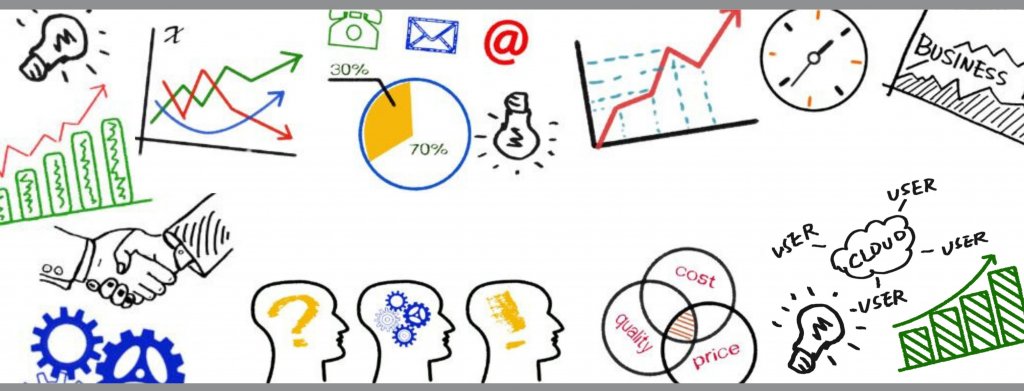Executive Podcast #290: 5 Trends that Will Define Work in 2024

In this episode, Chris Goede and Perry Holley discuss five trends that will define work in 2024 according to Harvard Business Review. The trends include the hybrid work evolution, push back against “workism,” caregiving policies, generational shifts, and the rise of the portfolio life. They explore the impact of these trends on leadership and provide insights on how leaders can navigate and adapt to these changes.
References:
Pre-order John Maxwell’s new book High Road Leadership!
Become a Maxwell Leadership Certified Team Member!
Download our Learner Guide for this podcast!
Perry Holley:
Welcome to the Maxwell Leadership executive podcast, where our goal is to help you increase your reputation as a leader, increase your ability to influence others, and increase your ability to fully engage your team to deliver remarkable results. Hi, I’m Perry. Holly, a Maxwell leadership facilitator and coach.
Chris Goede:
And that was much better than what I’ve done. I’m Chris Goede. Welcome to the Maxwell Leadership executive podcast. We are so excited that you’re here to join us. So excited to have Perry back in studio with us today. And if you are interested in learning more about five levels of leadership, again, the training, the consulting, the coaching that we do, I want to encourage you to go to maxwellleadership.com/podcast there. Click on this episode, this session. You can fill out a form and submit that information there, and we’ll follow back up with you.
Perry Holley:
Also get a learner guide there for.
Chris Goede:
And you can get a learner guide. Absolutely. So let’s dive in. Um, I want to talk about today, this topic. I’m very excited about this topic because oftentimes we. We will go and we’ll talk about different competencies, different things around the five levels of leadership and the foundation model. What you’re bringing to us today, I think, is extremely relevant. We’re going to talk about the five trends that will define work throughout the rest of 2024.
Chris Goede:
So, five trends that will define work in 2024. According to Harvard Business School, there are. There are these five key trends that are going to define how and what we do in the. In the workplace. So let’s look at the five and see if and how they’re going to affect the way that we lead our teams, whether it’s you and I leading teams or those that are listening or watching, and you lead your team. So I think this can be very impactful.
Perry Holley:
I found this interesting, that there’s things going on, and if, as a leader, I’d like to, you know, we definitely keep our heads down, working in the business and helping the team and all, but we work on the business and look around what’s going on in the environment and the culture and are there things I need to be aware of that may be affecting my team that I might not normally? Number one is probably not a really big surprise to anyone, but the hybrid work, they called it the hybrid work evolution. In the article, in the survey, Harvard actually said that the concept of in person workdays is undergoing significant transformation with the rise of work from anywhere. WFA, it had to have an acronym. Work from anywhere.
Chris Goede:
Work from anywhere.
Perry Holley:
Teams were witnessing a shift towards flexibility and adaptability. And I think leaders definitely need to. We want to build a culture of trust. And this I’ve heard people, can we trust people when they’re not in the workplace? I can’t see you and those types of things, but what’s your thought on. You have a mixed team? We have different people that work off site. On site, yeah.
Chris Goede:
I think this potentially not only coming off of 23, but also in 24, maybe in futuristically, this is a big, not only trend, but this is a big leadership opportunity for organizations they’re going to have to deal with. And some organizations are beginning to take a different type of stance. I was talking to my brother over the weekend, and he was sharing with me. He’s like, he works for a Fortune 100 company, and they’re like, no. Coming in third quarter, it’s mandatory. Everybody, you know, kind of back in, except for one day a week. So everybody has kind of their own blend. I think.
Chris Goede:
To me, it really depends on the roles that each, you know, team member has and the team dynamics. But when you do this, we’ll call it this hybrid. Like, you got to have clear policies and expectations. I think there are some pros to this. I think there’s some cost savings for certain organizations that can take advantage of it. I think this gives you a greater access to the talent pool that are out there, and I think it’ll give you some team satisfaction if you do it. You know, some of the cons that people talk about are there are communication challenges, and there’s this connection, there’s a team cohesion problem, because we can do this. Like you and I.
Chris Goede:
I mean, for. We’ve done this podcast a couple times over Zoom. We’re in person with each other, but it’s just different, right. It’s a different dynamic. And then you have this inequality of, well, how come she or he gets to have that hybrid and this one doesn’t? And what’s their role? And so we have some of those dynamics that you’re going to have to learn and understand how to lead through.
Perry Holley:
Well, I was. As I was researching a little bit, I happened to run across an interview with Elon Musk just recently, and he said that this remote work is a moral issue. So I leaned in, like, moral issue?
Chris Goede:
I thought, what?
Perry Holley:
He goes, yeah, as in, how dare you think you can work from home when the people that built your home, they don’t get to work from home. They had to come on site and build your home. And the people that make your food, they don’t work from home. They come and make your food and the people that service your car, they don’t get to work. As he kept going on and on that they all have to come to work. Why don’t you come to work? And made it a moral issue. So I disagree with that. I don’t think it’s that I love your response that it really is.
Perry Holley:
It’s going to be person by person, maybe role by role. It does require some levels of trust. You know, one thing I noticed, I actually work more at home than I do at the office because I’m very social and I like, I might wander around the office, but I don’t, there’s no, no purpose roaming around my house, so. But I found some friends of mine said, nice, can’t focus at home, and I need to be at the office. So be, be who you are, be self aware, and, you know, apply yourself, as you said, some balance, some trust, and it’s not for everybody. But, you know, I think as a leader, you got to deal with this.
Chris Goede:
You’re going to have to deal with this, if not already. It’s much different in the past. I think it’ll be continue to change in the future. And to your point, we have to just, we have to lead people the way that they need to be led. And you have to have that flexibility. And you may not have an extremely strict policy to it, but you can be lenient with it one way or the other. And we’re going to talk a little bit later in this podcast about what you just said about you tend to work more at home, and that could be a negative thing. Right.
Chris Goede:
Um, for yourself. So. Well, let’s talk about number two. Um, and this is it right here. Push back against work ism, which I saw this, I was like, work ism? Is that a workaholic? Well, it is in that category. Right. So this is about having, um, a life while you work, not your life being all about your work. And so workism is being defined as building your life too much around your job.
Chris Goede:
And so HBR says that work shouldn’t be expected to provide everything, including your community. The meaning you got to really have a work life balance. And that’s. That’s a challenge. And that’s what I was getting to just a minute ago about. I remember when we were full time at home, it just seems like you never shut it off for me personally. Like, the office is always there for right now. When I, you know, drive into work, I kind of, you know, get ready for work.
Chris Goede:
When I’m driving home for work, I try to shut some things off. Whereas to your point earlier, like, you get a lot of stuff done, but do you ever shut it off? And I want. I want you to comment on this because I know you’ve told me this personally in the years past. Like, you’ve had to have some conversations at home because you just get into a rhythm and you’re creative and you’re writing and you’re thinking, and before you know it, it might have worked right through breakfast, lunch and dinner. And, you know, the missus is like, hey, remember me? Remember home?
Perry Holley:
I start very early. That’s just my. I like those unseen hours are my most important hours of the day. So I able to do what I do. But as the day goes on, and so the only statement was made to me, why would I need to scream up the stairs to you to come to dinner at 06:00 why would I need to do that when you’re up there doing your righty thinky? I thought.
Chris Goede:
Developing the dictionary righty thinky.
Perry Holley:
I go, now I know how she sees my work. However, she’s right. I don’t have any boundaries. I didn’t have any guardrails. I didn’t have any start and stop time. So it became workism. And you know, when I was thinking about this one, because we just did the. We do a lot now on generational diversity and the different generations.
Perry Holley:
And how do you lead these? Some of this could be driven by the new generations. As a baby boomer myself, I’m driven by success and achievement, getting the job done. I don’t stop until it’s done. I just have this mentality that came from my generational space. But this Z and Y that are in the workplace are not driven that same way. And that’s why I love that we teach this, is that stop making light of that, about making fun of Z’s, Gen zs. But instead figure out what do they bring. And they bring this a bit of a balance.
Perry Holley:
They’re driven by purpose. They’re driven by meaning, not by achievement. Do they like to achieve? Of course they like to achieve. They want to make money just like anybody. But they’re not driven by it the way I was. And so they find themselves in my world of my whole life is all my community is at work, all my relationships are at work, all the purpose at work. No, they don’t want that. That’s workism.
Perry Holley:
And they want to have us. They want to separate those two.
Maxwell Leadership Certified Team:
Hey, podcast listeners, many of you listening right now? Would probably love the autonomy that comes with owning your own business or becoming a coach that helps other businesses succeed. Well, we have a phenomenal strategy where you are 100% in control of your own business, earning income on your own terms, and have access to the people, tools and resources you need to build a thriving leadership development business. When you become a Maxwell leadership certified team member, you join a global community of entrepreneurs led by our expert team of mentors and faculty, including John C. Maxwell. You’ll also get one of the top leadership certifications in the world next to your name, giving you the boost you need to get started. Visit us online at maxwellleadership.com/jointheteam to find out more.
Chris Goede:
I think as leaders, we’re going to have to really strategize on how do we implement things that allows them to prioritize. The balance of that. A couple of things is that I’ve done, and I’ve seen this over the past, as people began to work themselves or work ism as they would work from home too often is, man, you got to ask them about it. You got to be very, very direct and say, man, what time are we turning off the computer and getting away from the home office or the kitchen table, wherever that might be, and spending some time, whatever you want to spend time on in order for yourself or your family. And so you got to do that. You got to have regular check ins about that. Go ahead and encourage them to have time away.
Perry Holley:
I kicked myself last night. It was Sunday night, and I’m getting ready for bed and I can put my phone on the charger. And I notice an email had come in and I looked at it and then I answered it and I thought, well, I just sent a bad message to whomever sent it that I have no boundaries. I didn’t. It could have waited till morning. I could have actually answered it and then put send tomorrow morning instead of. But I thought, why do I do that? Because my life and my work are so integrated that I’m not balancing it correctly.
Chris Goede:
Yeah. And you just used a word and comment that I put down is encourage and coach your team to have boundaries, and it’s okay, you know, to do that. And then finally, maybe even allow flexibility for work hours. Right. And accept the fact that, hey, you’re a morning person, so your day is going to start, you know, after you get done with all of your personal stuff, it’s going to start around seven. So about three or 04:00 hey, I don’t want to see you. You know, online answering emails or whatever. I don’t think you’re going to listen to me either, but you’ll probably respond late at night.
Chris Goede:
It was probably my email, by the way. So I apologize about that. But, yeah, I think we’ve got to be very aware of that as leaders in this trend that that’s got to happen. And work ism is going to be a natural product and we’re going to have to help people lead through that.
Perry Holley:
Number three surprised me a bit. Called Harvard Business Review said, caregiving policies forward. How they label that and what the statement was and how they define it with the pandemic. Underscore the importance of caregiving duties, prompting a closer look. Look at supportive policies and you think about moms providing care for young children or children providing care for aging parents or single parent homes that need care on different levels and that sort of thing. And so in the past, all this care, whether for yourself or from someone you love, was on you. And that COVID kind of changed the family unit and how we interact with each other. I thought, you know, what is the caregiving policies? What should you be doing as a leader to think about how to help provide care for your.
Perry Holley:
For your people and their families and their teams?
Chris Goede:
Yeah, I saw this and I love that this is in here. I can’t, you know. Right. I’m fortunate enough to been married to my wife for a long time, and we’ve done team goatee in working and raising. But, man, the single moms out there, the single dads that are out there, even the dual working families that are out there that are managing all of these schedules and still managing their corporate life, um, man, that. Kudos to all of them, because what they accomplish not only at home, but it. In the office is amazing. But I like this.
Chris Goede:
And, um, it’s interesting because the HBR article talks a little bit about people are seeking a compassionate workplace culture. And we talk about culture a lot, and are we really compassionate about our team members and their personal journeys? And if you are, then this is going to be something that’s going to be out there.
Perry Holley:
Yep. Number four, we’ve hit it a little bit, but generational shifts are something you’re going to deal with in the workplace going forward. And that HBR said that the baby boomers make way for Gen X. Millennial leaders are stepping into prominent roles. The generational transition brings forth new perspectives and innovative leadership styles, paving the way for organizational evolution. Cultivating a culture that values this flexibility will be crucial. You know, as a. I feel like, I’m the baby boomer making way for you, the Gen X emerging into that.
Perry Holley:
I love to hear your views on this new perspectives and innovative leadership styles that will pave the way for our organizational culture. And I hope everyone has a pen and paper. Chris, what is the. Your new perspective and innovative leadership style is going to pave away for us?
Chris Goede:
I feel like you’re already posturing right now in a place of. Of being offended about where I’m about to go, especially with the word innovative and all these things. You’re like, what do you mean, I’m not innovative? And I love the fact that you were making the way. We’re ready for you to get out of the way, and so let’s go. We’re ready for you.
Perry Holley:
What are you waiting for? The truth is on the table.
Chris Goede:
Let’s have some fun with it. So, here’s what I did. I thought, okay, interesting. Let’s look at this. And we’ve done some stuff on generational diversity. This won’t be new to you, but I was thinking about these different generations between Perry and I, who are only one apart. The gap’s only one for us, but it is tough to see your friends get old. I told you that the other day.
Chris Goede:
Things are going through, and I thought I’d bring that back up here in front of millions of people for you and your generation. There’s a little bit of this in me, but not my generation as a whole, but when we talk about job security and it’s stability and the long term and the IBM for so many years, and do I really believe in the loyalty side of things where, you know, our generation has a little bit more autonomy and wants a little more flexibility? You guys have that authoritative, authoritative leadership style. We’re more. A little bit more collaborative. So how do we build teams together and innovate as a team versus the leader coming in and doing that? Technology advances, right? And this is hard for me to say because I don’t get into technology a ton. You may even be more technology advanced than I am.
Perry Holley:
I love my flip flow.
Chris Goede:
But you love your flip flow. That’s right. And then here’s one that I think is a big difference going forward is the in person communication versus the text or the emails. And it gets. I shouldn’t say worse, but it gets different even further generations down. Right. Even my kids, I’m like, hey, it’d be good to see every once in a while versus just a text, one word, text response. So, yeah, just some different ways that we’ll be able to innovate and think a little bit differently going forward as, as these generations shift through leadership.
Chris Goede:
And I think in 2024, we’ll see.
Perry Holley:
That number five, as we begin to wrap up rise of the portfolio life. It’s a trend you’re going to deal with. And HBR said, instead of viewing work and life as opposing forces, we embrace a holistic approach. By distributing our time and talents across family, work, community, engagement, hobbies and more, we’re crafting and fulfilling multidimensional lives. And I said, instead of separating work and life and the balance and all that, it’s a portfolio. I think you said it really well earlier, is that I have times for this. I have start and stop times. I make place for this part of my portfolio.
Perry Holley:
Now, this is going to be family portfolio time. This is going to be sports portfolio time or personal care portfolio time. What’s your view on that one?
Chris Goede:
I think it’s an interesting concept. What it reminded me of right away is those that have the ability to compartmentalize life. And I know my wife and I talk about this because I have the ability to compartmentalize really, really quickly and very easily. For her, everything is in one bucket. So this would be a little bit harder for her and some that are listening and watching. You’re going to have a little bit more challenge with this as you think through it. But I’m able to do that. And I think that when you can do that, it will dedicate certain times across the season of life for the different parts of your community, your hobbies.
Chris Goede:
John says it this way. John. John does not believe in work life balance. Right. For him, it’s really, really, really hard. And what he does believe in is having a calendar throughout the year, that when he carves out, when he has these different portfolios, family, this, that he’s 100% in on. So when he’s with his family on a vacation or whatever it is, it is 100% family. And when he is working, it is 100% working.
Perry Holley:
That’s interesting.
Chris Goede:
And so he looks at it as a lump sum throughout the year, throughout the month, or the quarter, versus, you know, trying to do that on a weekly or daily basis. Cause he has a hard time being able to do that.
Perry Holley:
So is it the truth here is the teaching is as a leader is to help your team to make a portfolio. What is your, how are you going to manage your portfolio? Don’t let them do. I like if John says it’s gonna be 100%, 100%, then that’s a great strategy, but I’m gonna. I’m not gonna be that. I’m going to do it a different way. But can you help your teammates? Absolutely.
Chris Goede:
I think. And that comes back to just the foundation, what we talk about, which is that level two leadership, really connecting and understand those that you lead. How are they wired? What works well for Perry and Bonnie and their family, and then let me help you lead through that so that. And then be very comfortable with that as a leader, knowing that that’s what’s going to set you up best for success. That’s your kind of portfolio. And I think it’s going to be essential for us to. To do that going forward. And so, kind of, as we wrap up, I think we need to.
Chris Goede:
To make sure everything we just talked about here today, we’ve got to really understand and dig in and have some knowledge on it so we can lead our teams through it. This is a. These are trends that are here now and will be here for a while. And I think if we can get a better understanding, we will attract and retain talent, uh, like we’ve never done before. We will enhance engagement and productivity with our team, and I think we’ll foster innovation from. From that team. We’ll get the. We’ll get the discretionary effort if we’re aware of what’s going on, and lead our team through these.
Perry Holley:
Super. Well, thanks for the input. And just a reminder, if you want to get that learner guide, if you’d like to learn about our other offerings, if you’d like to see about the other podcast offerings from our podcast family, you can do all that at maxwellleadership.com/Podcast. You can also leave us a question or a comment. We love hearing from you, and we’re very grateful you’d spend this time with us today. That’s all from the Maxwell Leadership executive podcast.
To be a Successful Leader, You Need Feedback on Your Leadership.
We’re excited to announce our new and improved Organizational Effectiveness Survey (OES). The OES gathers feedback from employees to give leaders and management the knowledge and action plans needed to develop a more effective and productive work environment. Our new version measures 4 areas of your business: Leadership, People, Strategy, and Performance.













Be the first to comment on "Executive Podcast #290: 5 Trends that Will Define Work in 2024"